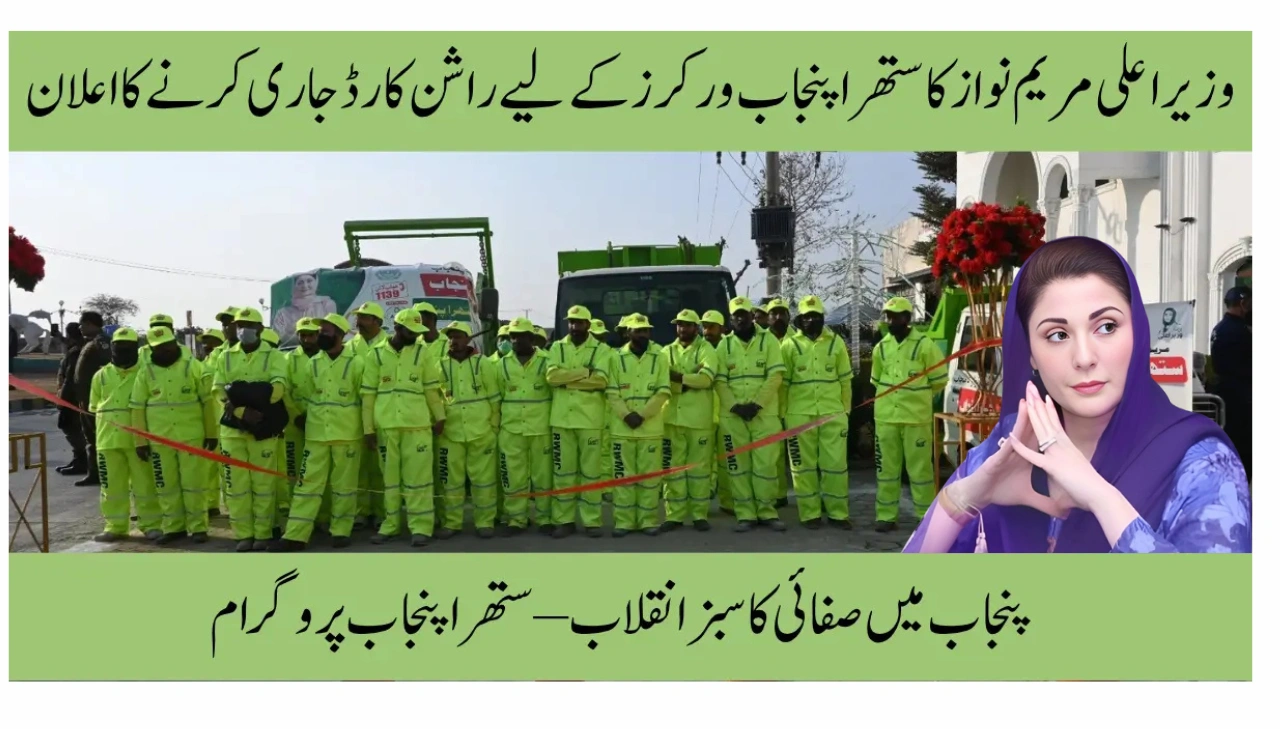Punjab’s ongoing cleanliness movement, the Suthra Punjab Program, has entered a new phase this October 2025, aiming to create cleaner, greener, and healthier cities. With new billing systems, strict waste segregation rules, and zero-waste zones, the program marks a major step forward in how urban waste is managed across the province.
A Step Toward a Cleaner Punjab
The Suthra Punjab Program was launched to tackle one of the biggest challenges facing urban Punjab—improper waste disposal and littering. This month’s update introduces stronger enforcement measures, clearer billing structures, and modern recycling and waste-to-energy (WTE) systems to make cleanliness sustainable.
Instead of relying on large-scale clean-up drives after waste piles up, the government is focusing on prevention and regular management. This means households and shops will now share responsibility for keeping their surroundings clean.
What’s New in October 2025
From October, residents and businesses will notice a few key changes:
-
Monthly Cleanliness Bills: A small, slab-based monthly charge now applies to every property. The amount depends on the size and category of the building. Smaller houses pay less, while larger homes and commercial outlets fall under higher slabs.
-
Zero-Waste Zones: Several neighborhoods have been declared “zero-waste,” where open dumping, littering, and waste burning are completely banned.
-
Recycling and WTE Expansion: Greater focus is being placed on sorting waste for recycling and turning non-recyclable waste into electricity through WTE plants.
These changes aim to ensure long-term cleanliness rather than one-time cleanups.
How It Affects Households and Businesses
For most households, the new cleanliness charge will be modest. For example, a 5-Marla house may pay around Rs. 300 per month, while larger houses will be billed in higher slabs. Commercial units such as small shops, offices, and plazas will pay higher rates depending on their category.
Residents living in zero-waste zones must follow waste segregation and disposal schedules strictly. Inspectors may check compliance, and fines can apply for improper dumping or missed segregation.
Simple Rules for Compliance
To make compliance easy, the government has shared simple steps everyone can follow:
-
Use two bins – one for wet (kitchen) waste and another for dry (plastic, paper, metal) items.
-
Bag and tie waste properly before putting it out.
-
Follow collection schedules – leave waste outside only during the designated time slots.
-
Avoid dumping near drains or open plots.
-
Report missed pickups via official helplines or mobile apps.
By following these simple habits, households and businesses can contribute directly to a cleaner Punjab.
Why These Reforms Matter
The goal behind the new system is to move from reactive cleaning to proactive waste management. With regular billing, the system becomes financially sustainable, ensuring proper equipment maintenance, fuel, and staff wages.
Moreover, waste segregation helps recyclers recover valuable materials efficiently, while waste-to-energy systems reduce landfill use and produce clean energy. The combined result is a reduction in pollution, fewer health risks, and a greener environment.
Benefits You’ll Notice
Residents are already reporting visible improvements in pilot zones:
-
Cleaner streets with regular door-to-door waste collection
-
Fewer illegal dumps and less smoke from burning garbage
-
Healthier surroundings due to better waste control
-
Fairness in billing—charges are linked to property size, not blanket fees
If You Receive a Bill or Fine
Your monthly waste bill will list your property category and amount. Late payments can lead to penalties or suspended collection services. If you think your bill is incorrect, you can file a dispute using your property ID and recent photos for verification.
Similarly, fines for littering, illegal dumping, or waste burning are now strictly enforced in zero-waste areas.
A Shared Responsibility
The Suthra Punjab Program reminds everyone that keeping cities clean is not just a government task—it’s a shared responsibility. Every household and shop that follows the rules helps reduce pollution, prevent diseases, and improve community living standards.
As Punjab moves toward becoming a model for urban cleanliness, even small efforts—like separating trash or paying your monthly bill on time—can make a big difference.
In short: The Suthra Punjab Program’s October 2025 update brings structure, accountability, and innovation to urban cleanliness. With collective participation, Punjab can truly live up to its name—Suthra (Clean) Punjab.

